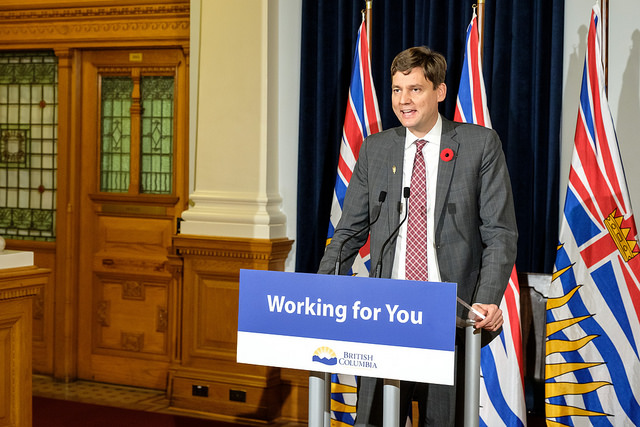
VANCOUVER — British Columbia’s attorney general says he is hoping a federal election campaign won’t get in the way of Ottawa fully co-operating with the province to deal with serious allegations of money laundering related to billions of dollars in transactions involving drugs, real estate and luxury vehicles.
David Eby said he was more confident after meeting with Organized Crime Minister Bill Blair on Tuesday after he failed to get any action when he brought the problem to the attention of other federal cabinet ministers as well as raising it at meetings with his provincial and territorial counterparts.
“I’m increasingly hopeful that we will now see some traction on this,” Eby told a news conference with Blair after the two met to discuss British Columbia’s concerns.
Eby has said he was shocked the RCMP did not provide any information on the extent of money laundering in B.C., but he did forward information to a Paris-based group that produced an international report that says $1 billion a year is funnelled through the province’s casinos.
Blair said he wants to assure Canadians the federal government will deal with the issue more effectively.
“There’s information that, clearly, both of our governments need and we need to share and we need to work on together,” he said, adding he has spoken with Peter German, a former Mountie who is conducting a second review of money laundering in B.C.
Eby said in the last 24 hours, the RCMP had advised German he would get the information he needs for his review, which is due in March, but he would wait to see what happens.
He said both he and German also want information the RCMP passed on to the Financial Action Task Force, a body of G7 countries fighting money laundering, terrorist financing and threats to the international system.
The report issued last July says money was being laundered in British Columbia through an underground banking network and part of its illegal activities involve money from illicit drugs as well as illegal gambling and extortion to supply cash to Chinese gamblers in Canada.
Eby said despite Prime Minister Justin Trudeau’s mandate last year for Blair to take action on money laundering, it’s just a first step toward what the federal government must do.
“There is still insufficient capacity to investigate, detect and prosecute these things,” he said. “There’s still challenges around policy and law and minister Blair has committed to us that he will receive our suggestions to him for improvement and more particularly Peter German’s recommendations out of a review that he’s doing right now.”
He said B.C. is aiming to take action as quickly as possible “but we need the feds along for the ride.”
“This is an area of international issues, with Mexico, the United States and China involved.”
Eby said a public inquiry into money laundering may be held and he has asked Blair for the federal government’s support.
He said time will tell if there are gaps between Blair’s commitment and the actions his department is willing to take in the short window before an election campaign gets underway.
Peter Goudron, executive director of the B.C. Gaming Industry Association, said last week casinos have implemented measures to combat potential money laundering including placing cash restrictions on players in 2015, which reduced the value of suspicious transactions by more than 60 per cent over the next two years.
He said operators have also implemented interim recommendation made by German that require additional scrutiny of large cash buy-ins since last January.